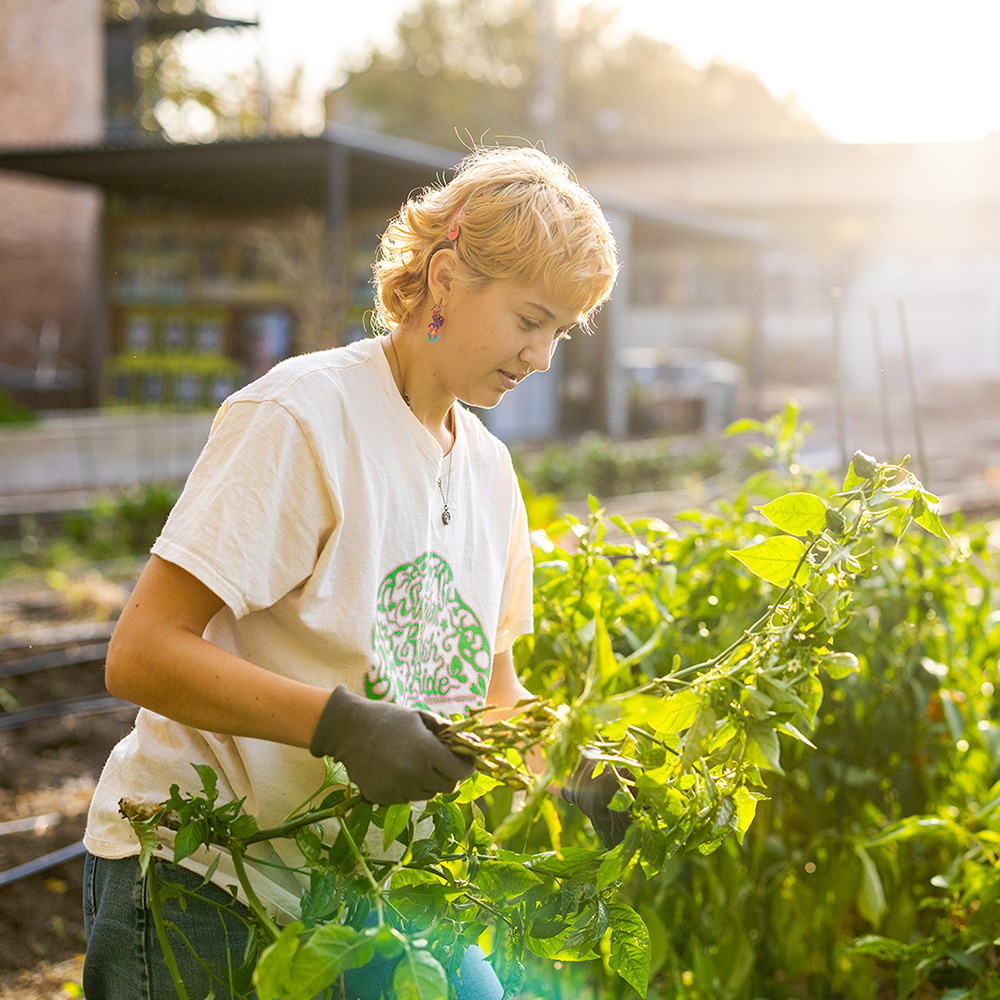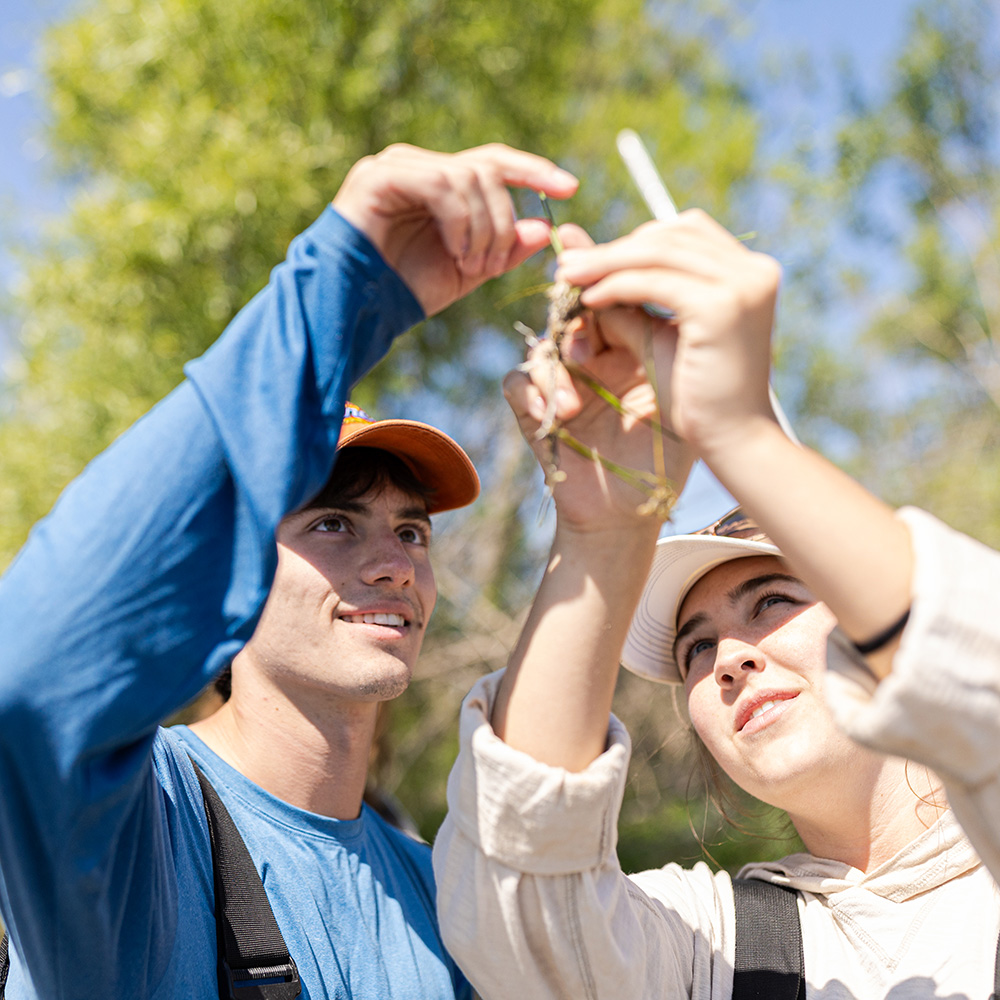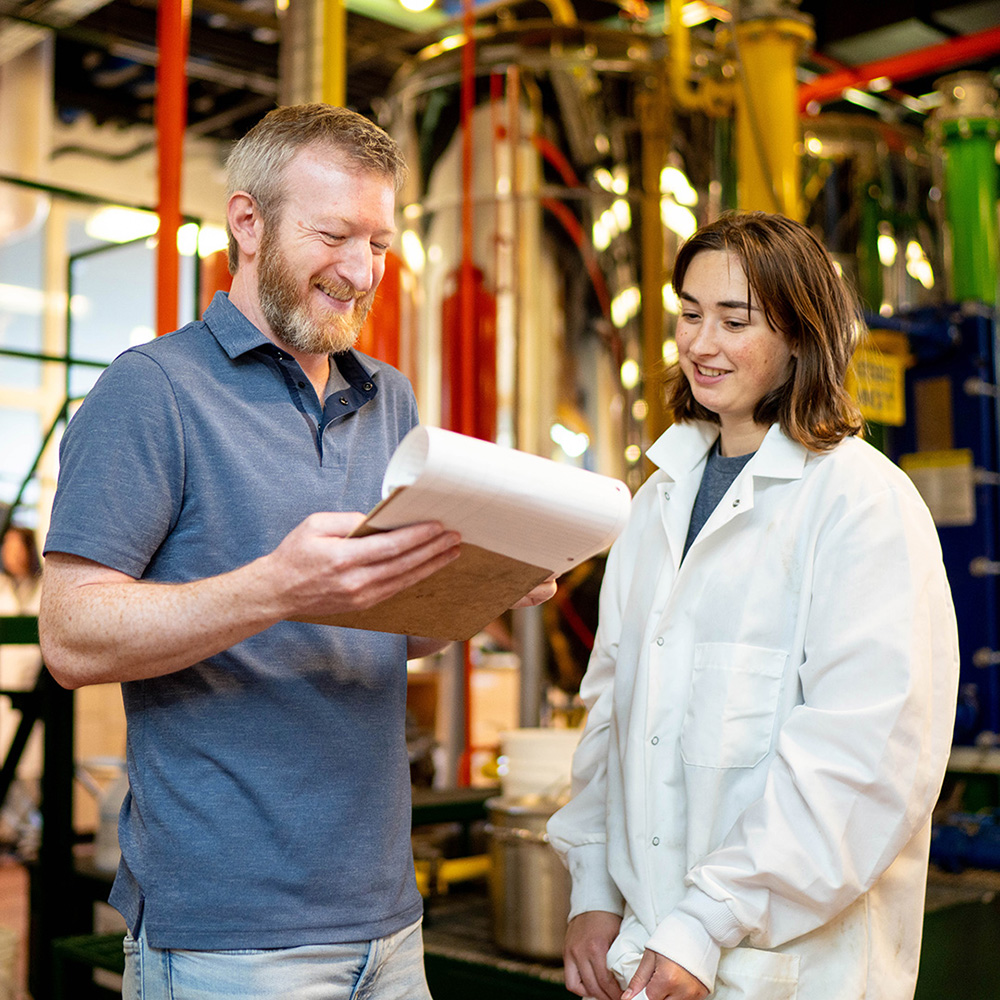Undergraduate Degrees
Loyola University Chicago’s School of Environmental Sustainability (SES) offers eight bachelor’s degree programs that equip students with the multidisciplinary knowledge base needed to understand environmental problems and formulate solutions that contribute to a more just and sustainable future.
These programs provide opportunities to build experience and develop transferable skills. Students can participate in internships within SES and through external partner organizations, engage in faculty-mentored research, and learn through hands-on coursework designed to convey knowledge through a practical lens. Students work with a diverse group of SES faculty and staff members with expertise in a broad array of disciplines. SES faculty and staff are deeply invested in promoting future student success and facilitating the completion of one of the following majors.
- BA in Environmental Policy
- BA in Environmental Studies
- BA in Environmental Economics and Sustainability: Governance or Management
- BS in Environmental Science
- BS in Environmental Science: Conservation and Restoration Ecology
- BS in Environmental Science: Food Systems and Sustainable Agriculture
- BS in Environmental Science: Environmental Health
Interdisciplinary Curriculum
All SES students, whether in a BS or BA track, take courses in the biological and physical sciences, social sciences, and humanities. Students gain a solid foundation in underlying ecological and physical sciences as well as the cultural, political, and economic contexts in which environmental issues occur. This well-rounded curriculum prepares graduates to work with people across sectors and disciplines to create effective solutions.
Applied Learning
SES students are not only learning, but they are also doing. The programs offer extensive opportunities for experiential learning and action. These include:
- Solutions to Environmental Problems [STEP] courses
- Service-learning classes
- Internships within SES and with external partner organizations
- Independent faculty-mentored environmental research
- Loyola University Retreat and Ecology Campus (LUREC) classes and volunteer restoration days
- Student Operation for Avian Relief (SOAR)
- Student Environmental Alliance (SEA)
- Student Restoration Club
- Loyola University Chapter of the Food Recovery Network (FRN)
Students in all SES bachelor’s degree programs have the option of earning both a bachelor’s degree and a master’s degree in five years instead of six through our accelerated bachelor’s/master’s program.
Learning Outcomes
Program learning outcomes common to all eight SES academic majors include:
- Articulate the foundational principles of natural and social sciences and humanities essential to solving environmental problems.
- Critically evaluate the accuracy and credibility of information relating to environmental topics.
- Employ knowledge and skills to design and implement solutions that contribute to a just and sustainable world.
- Exemplify the values of environmental and social justice through actions to care for our common home and one another.
Careers
SES alumni have pursued careers in the following sectors:
- Sustainability and energy
- Environmental consulting
- Food and agriculture
- Business
- Ecological – private sector
- Nonprofit organizations
- Environmental and public health
- Ecological – government sector
- Outreach, community service, and education
- Policy
- Analytical/laboratory
- Academics
- Urban planning
- Environmental law
Learn more about alumni careers in our latest progress report.
Our Community

Community Engagement
Supporting sustainable food systems
Loyola's Partners in the Chicago Food System program aims to increase access to healthy, sustainably grown food. As part of the program, students participate in paid internships with community groups working on food equity. Student interns support the organizations' missions while gaining valuable hands-on experience.
View the video
Research
Conservation in action: students engaged in ecological research
Researchers from Loyola University Chicago's School of Environmental Sustainability are devising new methods of restoring biologically diverse wetlands. Students contribute to the research while learning to become independent scientists.
View the video
Climate and Energy
Converting used cooking oil into fuel
Students in Loyola’s School of Environmental Sustainability are converting used cooking oil into renewable biodiesel fuel. Learn more in a new video.
Learn moreLoyola University Chicago’s School of Environmental Sustainability (SES) offers eight bachelor’s degree programs that equip students with the multidisciplinary knowledge base needed to understand environmental problems and formulate solutions that contribute to a more just and sustainable future.
These programs provide opportunities to build experience and develop transferable skills. Students can participate in internships within SES and through external partner organizations, engage in faculty-mentored research, and learn through hands-on coursework designed to convey knowledge through a practical lens. Students work with a diverse group of SES faculty and staff members with expertise in a broad array of disciplines. SES faculty and staff are deeply invested in promoting future student success and facilitating the completion of one of the following majors.
- BA in Environmental Policy
- BA in Environmental Studies
- BA in Environmental Economics and Sustainability: Governance or Management
- BS in Environmental Science
- BS in Environmental Science: Conservation and Restoration Ecology
- BS in Environmental Science: Food Systems and Sustainable Agriculture
- BS in Environmental Science: Environmental Health
Interdisciplinary Curriculum
All SES students, whether in a BS or BA track, take courses in the biological and physical sciences, social sciences, and humanities. Students gain a solid foundation in underlying ecological and physical sciences as well as the cultural, political, and economic contexts in which environmental issues occur. This well-rounded curriculum prepares graduates to work with people across sectors and disciplines to create effective solutions.
Applied Learning
SES students are not only learning, but they are also doing. The programs offer extensive opportunities for experiential learning and action. These include:
- Solutions to Environmental Problems [STEP] courses
- Service-learning classes
- Internships within SES and with external partner organizations
- Independent faculty-mentored environmental research
- Loyola University Retreat and Ecology Campus (LUREC) classes and volunteer restoration days
- Student Operation for Avian Relief (SOAR)
- Student Environmental Alliance (SEA)
- Student Restoration Club
- Loyola University Chapter of the Food Recovery Network (FRN)
Students in all SES bachelor’s degree programs have the option of earning both a bachelor’s degree and a master’s degree in five years instead of six through our accelerated bachelor’s/master’s program.
Learning Outcomes
Program learning outcomes common to all eight SES academic majors include:
- Articulate the foundational principles of natural and social sciences and humanities essential to solving environmental problems.
- Critically evaluate the accuracy and credibility of information relating to environmental topics.
- Employ knowledge and skills to design and implement solutions that contribute to a just and sustainable world.
- Exemplify the values of environmental and social justice through actions to care for our common home and one another.
Careers
SES alumni have pursued careers in the following sectors:
- Sustainability and energy
- Environmental consulting
- Food and agriculture
- Business
- Ecological – private sector
- Nonprofit organizations
- Environmental and public health
- Ecological – government sector
- Outreach, community service, and education
- Policy
- Analytical/laboratory
- Academics
- Urban planning
- Environmental law
Learn more about alumni careers in our latest progress report.
